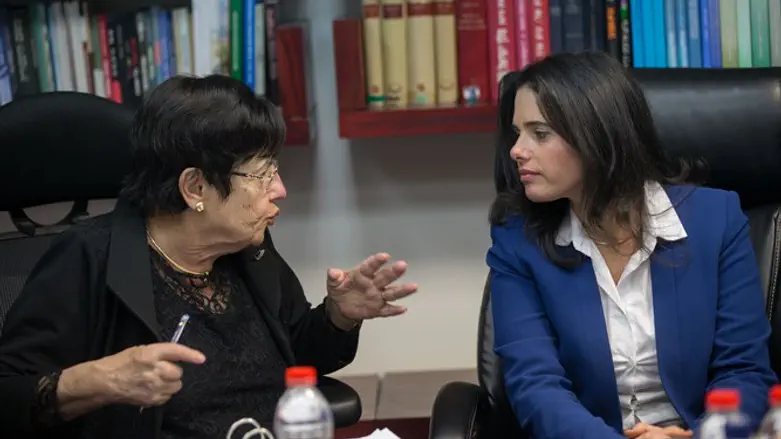
Justice Minister Ayelet Shaked (Jewish Home) announced Thursday afternoon that the ministry would be reducing the requirements for new judicial candidates from the haredi community, in an effort to increase haredi representation in the Israeli court system.
The announcement followed talks between Shaked and Supreme Court President Miriam Naor on the relative dearth of haredi judges in Israel. The two agreed to ease requirements for haredi judicial candidates in an effort to increase the number of judges from that sector.
“This message to the haredi community [will help us achieve] the very important goal to diversify the judicial system, so that it will reflect the diversity of types and opinions in the Israeli public,” said the Justice Minister.
Shaked referenced the selection Wednesday evening of four new justices to the Supreme Court, including the court’s first religious female justice. An Arab Supreme Court justice is retiring this year and the late Edmund Levy was of mizrahi roots.
“Yesterday the first religious woman on the Supreme Court was chosen; this year we nominated the first female Ethiopian judge, and I hope that soon we’ll have chosen a judge from the haredi community.”
“It doesn’t make sense to me that a large population doesn’t have fitting representation in the judicial system. To encourage haredi candidates to join the courts, we are declaring an easing of [requirements] and speeding up of the process, and we hope to see a change soon.”
The goal of haredi judges may not be easy to fulfill due to halakhic considerations. There is no lack of haredi lawyers, but there is a halakhic problem in serving as a justice in courts that do not decide according to the Torah. When the state was established, then Chief Rabbi Herzog hoped that the courts would adopt Jewish civil law, as was done in the Diaspora when Jews were allowed to have their own courts, but this did not occur. Only laws of marriage and divorce are on a halakhic basis, and some of this was eroded when the state established family courts.